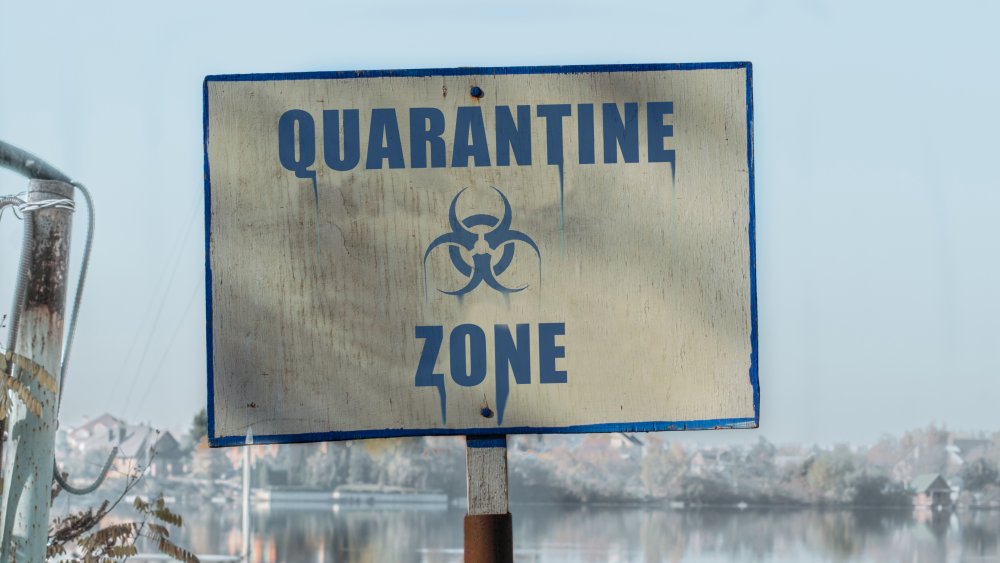Here's The Difference Between Quarantine And Isolation
Quarantine is the word of the day, and unfortunately, it can do a lot more than just earn us a ton of points in Scrabble. Thanks to the COVID-19 coronavirus strain currently making the rounds, tons of people are getting intimately acquainted with the term, whether they like it or not. As Valentina Di Donato, Emma Reynolds and Rob Picheta of CNN reported on March 13, 2020, pretty much the entire country of Italy has gone on lockdown, with the areas most affected by the novel coronavirus being quarantined "red zones." According to Jessica Hamzelou of New Scientist, China has used quarantine as an essential tool to control the situation. Oh, and as Dr. Lisa Lockerd Maragakis of Johns Hopkins tells us, there's also self-quarantine, which you might have to do if you've been exposed to the virus, or traveled in a place with an ongoing COVID-19 virus situation (Are there any other places these days?).
The thing is, people aren't always calling it "quarantine." As the BBC tells us, there's also talk of things like "self-isolation." Surely, that's just a way to say "self-quarantine" for people who don't want to type the word "quarantine?" Aren't quarantine and isolation basically the same thing?
Isolation and quarantine are very different
As Jake Rossen of Mental Floss tells us, isolation and quarantine are actually two completely different things. While they both are means to battle the novel coronavirus by distancing a person from others, there's one key difference: Whether that person already has the disease or not.
A quarantine is usually either self-imposed or imposed on someone who may or may not be infected, in order to keep them away from others for a period of time to see if they get any symptoms, and also to make sure they won't be able to infect others. In the case of the COVID-19 virus, the time period is usually 14 days. It's believed that the practice comes from the Italian words quaranta giorni, meaning "40 days" — the amount of time 14th century Venice kept foreign ships docked before they were allowed entry. (In a strange twist of fate, Venice is currently one of the "red zones" in Italy's quarantine procedures.)
Isolation, on the other hand, happens when the person already has the disease, at which point they're put in a hospital to stop them from infecting others. If the symptoms aren't too awful, self-isolation at home may also be an option.

